7 Reasons Why Selecting an AS9100-Registered Manufacturer Matters
When selecting a potential supplier, repeatable quality matters. Whether as a buyer in search of the next tech-gadget, the family car, or a complex sub-component for a military jet—the product must perform. In the defense industry, and more specifically the aerospace sector, the quality management system (QMS) responsible for consistent organizational and product performance is called the AS9100 standard.
A little background
The AS9100 standard was born in the late ‘90s. This was when aerospace OEMs (original equipment manufacturers) recognized quality management systems failed to address the entire suite of reliability and quality needs required by prominent customers such as the Department of Defense and NASA. With a backbone based on the widely-accepted ISO 9001 standard, AS9100 evolved to incorporate precise directives aimed to improve the quality of products deployed. Manufacturers are interested in selling goods to the aerospace industry now find the AS9100 QMS as a prerequisite—and for good reason.The standard requires manufacturers to focus on seven vital pillars:
The 7 Reasons AS9100 Matters
1. Customer Focus
As with all businesses, customers are the hub of the wheel.AS9100 standard demands manufacturers actively capture, analyze, and hold management reviews of necessary Key Process Indicator (KPI) metrics. Examples include on-time delivery, product and subcomponent failure rates, contract audits, and customer feedback. Executive reviews bring these underlying topics to the forefront and innately persuade action to better the organization’s future performance. Cohesive and calculated steps are taken to identify, acquire, and secure profitable customers and equally as important, the same level of detail should be given to post-sales reviews to ensure their long-term retention.
2. Leadership
It all starts at the top! A recent addition to the AS9100 system puts an emphasis on the leading sectors of the organization and how they manage risk within their respective departments. AS9100 directs manufacturers to formally document their tactics and results to improve the intra-departmental processes and outputs. This level of attention to all aspects of business management is a characteristic of all top-notch manufacturers.
3. Engagement of People (Employees/Staff)
Keeping the organization’s staff informed, interested, and challenged has always been a goal of world class management teams. Development, testing, and production of components earmarked for the defense industry are intrinsically complicated and employee’s attention to quality is required. For example, in the most recent AS9100 revision, greater emphasis is placed on employee training protocols addressing Electrostatic Discharge (ESD) and Foreign Object Debris (FOD). Regular training and cross-training exercises debriefs on program status, and product road-mapping discussions are productive ways to engage the people of your organization.
4. Process Approach
Manufacturers under the AS9100 directive must continually assess each procedure within their business. Analysis of processes such as product development, first article inspections, quality acceptance test procedures, contract review, customer flow-down requirements, and more are critical to identify and eliminate potential pitfalls. These continuous reviews open the door for QMS procedural revisions as the organization advances.
5. Continual Improvement
As products and technologies evolve, so should the manufacturer. With an appetite for constant improvement, receptive companies interpret changes to their product, processes, and quality system requirements favorably rather than as an impediment.Fostering cultural acceptance of these changes ultimately solicits open, honest, and progressive conversations within working groups of the organization. This type of collaboration brings rudimentary and complex topics to the table for discussion which only helps enhance the quality of the product/service.
6. Evidence-Based (Factual) Decision-Making
Particularly in the aerospace industry, companies find themselves searching for tangible data to evaluate past performance; this process can be difficult. The technique called 5 Whys is a proven method to unearth root causes of performance, good or bad. Complicated products, demanding programs, and highly technical assemblies can lead to rash decisions when looking for a solution to a perceived problem. By focusing on evidence-based factual decision making, companies are more likely to address concrete areas of improvement rather than chase white rabbits.
7. Mutually Beneficial Supplier Relations
In a hypothetical hierarchal scale of importance, customers are at the cusp; however, the significance of a mature supply chain should not be taken for granted. While this is true in all industries, in the aerospace world their contribution to the end product is paramount. Whether the subcomponent is a resistor, storage device, LCD, capacitor, or rugged enclosure, the AS9100 manufacturer must demand perfection every time. In turn, both companies need to work with one another to find mutually beneficial solutions when defects, delivery delays, technical hurdles, etc. are identified. For instance, to mitigate quality risks associated with counterfeit electronic components, AS9100 registered manufacturers and their suppliers ensure parts are purchased from qualified sources.
Bottom line?
An experienced supplier is an invaluable tool which should be leveraged when a technical solution is needed. At times, manufacturing complex products for the aerospace industry can be extremely tedious given the requirements of a stringent quality management system. However, an organization who embraces the system and its seven pillars will undoubtedly improve its staff’s ability, documentation, processes, stakeholder relationships, customer satisfaction, and above all else, product quality.
